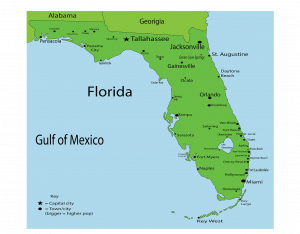Is Orlando, Florida, Safe?
Go Back To Previous PageWhen considering a move or vacation to Florida, one question often arises: Is Orlando, Florida, safe? Visitors, prospective residents, and families want reassurance. The truth is nuanced. Orlando combines major tourism, diverse neighborhoods, and both strengths and risks in safety. In this article, we’ll dig into crime statistics, traffic safety, neighborhood variation, public services, and tips to stay safe. We will also examine whether Orlando is a safe place to live, and what you should expect from daily life there.
Orlando combines major tourism, diverse neighborhoods, and both strengths and risks in safety. In this article, we’ll dig into crime statistics, traffic safety, neighborhood variation, public services, and tips to stay safe. We will also examine whether Orlando is a safe place to live, and what you should expect from daily life there.
Crime Statistics and Trends
To answer, is Orlando, Florida, safe? We begin with the data. According to NeighborhoodScout, your chance of being a victim of violent crime in Orlando is one in 109.
Meanwhile, property crime is more common: one in 26 residents may experience theft, burglary, or motor vehicle theft. Niche reports crime rates per 100,000 residents: assault at 615.7 (versus national ~282.7), murder 10.3 (versus ~6.1), rape 72.7 (versus ~40.7), and robbery 137.1 (versus ~135.5).
These rates suggest Orlando’s violent crime is substantially above national norms.
In terms of safety ranking relative to other U.S. cities, Orlando sits in the 78th percentile, meaning it is safer than 78% of cities but less safe than 22%. This supports the view that Orlando is neither extremely dangerous nor perfectly safe—it lies somewhere in between.
Crime trends over time show some fluctuations. Macrotrends notes that the overall crime rates in Orlando (for example, in 2018) were around 796.01 per 100,000, up from prior years. Some recent local news stories also reflect continued crime incidents.
So, by the numbers, is Orlando, Florida, safe? The answer is: safer than many, riskier than some, depending heavily on where you are and how cautious you are.
Violent vs. Property Crime
Breaking down the numbers helps clarify whether Orlando, Florida, is a safe place to live for different risk types. Violent crime includes homicide, rape, robbery, and aggravated assault. In Orlando, the violent crime rate per 1,000 residents is about 9.21. That is high relative to national medians (which tend to hover around 4 per 1,000).
Property crime comprises burglary, theft, motor vehicle theft, and vandalism. Orlando’s property crime rate is roughly 38.25 per 1,000, meaning roughly one in 26 people may be a victim of property crime.
One alarming metric: motor vehicle theft. Orlando has one of the highest rates in the nation—your chance of losing a vehicle to theft is estimated at one in 263. For some residents, property crime is their primary concern rather than violent crime.
In summary, violent crime is not negligible in Orlando, but property crime is the more widespread daily risk. That context is essential for anyone asking Is Orlando, Florida, safe.
Neighborhood Variation & Safe Zones
One key aspect when interpreting whether Orlando, Florida, is a safe place to live is that safety is not uniform.
Some neighborhoods are much safer than others. District-level crime reports (for example, District 4’s monthly crime stats) show significant variation by neighborhood.
Some parts of downtown, northwest, or east Orlando tend to log more crime calls. CrimeGrade gives Orlando an “A-” grade overall, suggesting that crime rates are below average for many U.S. cities. Still, even an “A-” rating doesn’t mean every street or block is safe.
When you narrow your focus to suburban areas or gated communities, or well-patrolled zones near tourist centers, many residents report feeling comfortable walking and living. If you’re considering a move, it’s wise to consult crime maps or local police precinct reports.
Also, talk to residents, drive through neighborhoods at different times, and check online forums. So, is Orlando a safe place to live? Yes, in many neighborhoods, but pick your location carefully.
Daytime vs. Nighttime, Tourist Areas
When asking Is Orlando, Florida safe, it’s worth distinguishing daytime safety (especially in tourist zones) from nighttime safety (especially in less busy zones). In busy tourist areas, theme parks, International Drive, and Lake Eola, law enforcement presence is strong, and these spaces tend to be relatively secure. Most visitors have stays without incident.
However, at night, especially in poorly lit streets, public parks, or low-traffic areas, the risk rises. There are instances of shootings, stabbings, and other violent events in Orlando.
One recent case: Orlando police fatally shot a man who charged at officers with scissors in a downtown park, and stray bullets struck a nearby café (which was luckily empty).
Another: officers are investigating the killing of an armed man downtown; the Florida Department of Law Enforcement is involved.
For tourists and newcomers, general safety protocols include staying in well-lit areas, avoiding walking alone late at night, and using ride services rather than walking through unfamiliar neighborhoods.
Thus, whether Orlando, Florida, is safe depends heavily on the time of day, the location, and your own caution.
Traffic, Pedestrian, and Road Safety
Safety in Orlando is not only about crime. Traffic, pedestrian, and bicyclist hazards are significant too. In Orange County during 2023, there were 24,447 traffic accidents, 146 fatal accidents, and 11,543 that resulted in injuries.
Driving in Orlando means navigating heavy congestion, tourists, unfamiliar drivers, and sometimes aggressive driving.
Pedestrian and bicycle safety is a concern. In 2022, Orlando recorded 667 crashes involving pedestrians or bicyclists; 104 of those involved serious injury, and 22 were fatal.
Car crash data further highlights risk: in 2024 alone, 45 people lost their lives in crashes in Orlando, and 482 were seriously injured.
So, when evaluating whether Orlando is safe, don’t forget that roadway dangers are real. Be cautious as a driver, pedestrian, or bicyclist, especially at night or in heavy traffic zones.
Law Enforcement, Public Safety, and Services
Safety is more than statistics. How well law enforcement, emergency response, and city services function matters. Orlando’s city website offers a “View Active Calls” dashboard for the Orlando Police Department, letting residents see real calls in real time.
This transparency can help locals monitor trends. The Orlando Police Department also actively maintains social media channels and encourages crime reporting. Public safety news items show ongoing investigations, officer actions, and internal reviews when controversies arise. In mid-2025, federal agents arrested a suspected MS-13 gang member in Orlando, triggered by local ICE operations. That case underscores that the city is occasionally a focus of federal crime enforcement.
Fire, EMS, and 911 services in Orlando are generally well-provisioned in urban and tourist areas. Response times vary by location. These service layers help balance risks so that whether Orlando, Florida, is safe is not just about crime but about how the city responds when crime or emergencies occur.
Quality of Life, Schools, and Community
When someone asks Is Orlando, Florida, a safe place to live, they often mean: “Can I raise a family here and feel secure in daily life?” Orlando offers a relatively moderate cost of living compared to some large metro areas. Combined with a warm climate, job opportunities, and entertainment options, many people find it attractive.
Schools exist in safer and less safe districts. Research local school zones and correlate them with crime maps before choosing a residence. Community engagement, neighborhood watch groups, civic associations, and business improvement districts can bolster security. Real engagement often correlates with stronger perceptions of safety.
Parks, outdoor spaces, and cultural centers generally feel safe during the daytime, especially in densely populated areas. For many families, these are integral to the quality of life. Still, periodic crime in the surrounding regions or rogue incidents can affect a sense of security. The occasional news of violence or police shootings can raise anxiety, but these are not constant daily occurrences.
Comparing Orlando to Other Cities
One way to assess whether Orlando, Florida, is safe is to compare it with peer cities. Orlando’s crime rates for both violent and property crime are above national median levels. Some sources place Orlando among cities with the highest property crime rates in the country.
However, many comparators (such as large cities in Florida or other tourist hubs) also face inherent crime risks. Orlando’s ranking in the 78th percentile for safety suggests it outperforms many U.S. cities, though it’s not among the safest.
Final Thoughts & Recommendation
So, is Orlando, Florida, safe? The answer: yes, to a degree, but with caveats. For many residents and visitors, the risk is manageable with awareness and caution. But it’s not immune to crime challenges.
If you’re considering relocating or spending significant time there, here’s what to do:
- Choose your neighborhood carefully. Research crime maps, drive through zones day and night, and ask locals.
- Hire a reputable Orlando moving company for local moves; they often know safe routes and zones.
- Adopt security habits. Lock cars, avoid walking alone at night, and secure homes.
- Stay informed. Monitor local news, police reports, and community bulletins.
- Take advantage of resources. Connect to neighborhood associations, community policing, or local safety groups.


